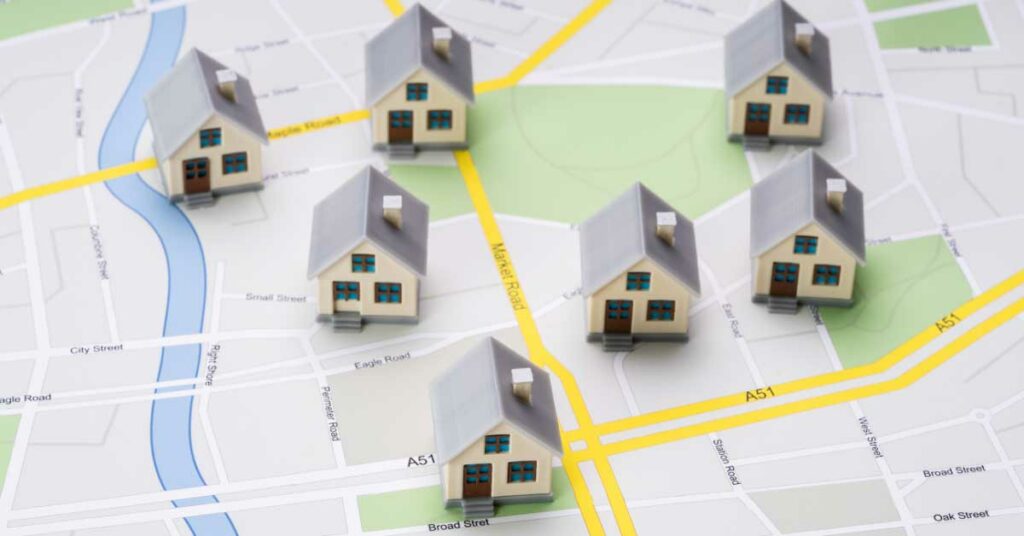Overcoming Zoning Constraints for Manufactured Homes
Overcoming zoning constraints is essential. The growth and expansion of the manufactured housing industry is a testament to the innovation and adaptability of this housing solution.
As one of the most affordable and rapidly deployable housing options, manufactured homes have the potential to significantly contribute to alleviating America’s housing crisis.
However, one significant barrier stands in the way – zoning constraints.
This post explores these challenges and provides some potential solutions to increase homeownership through manufactured homes.

Understanding Zoning Constraints
Zoning laws dictate how land can be used in specific areas, and they can greatly affect the possibilities for installing manufactured homes.
Many communities have restrictions on where manufactured homes can be placed, often relegating them to designated manufactured home parks. This restriction severely limits the options for potential homeowners, creating a bottleneck that can stifle the growth of the industry.
Some common zoning constraints include minimum lot sizes, restrictions on density, and even aesthetic rules about what a home must look like.
While these laws often aim to preserve community character or maintain property values, they can unintentionally limit affordable housing options, exacerbating the housing shortage crisis.
Pathways to Overcoming Zoning Constraints

1. Advocacy and Education
The first step towards change is raising awareness about the realities and potential of manufactured homes. Industry stakeholders, homeowners, and investors must advocate for the benefits of manufactured housing, dispelling myths and changing the perception of policymakers and the public.
Showcasing modern manufactured homes, with their improved design, quality, and energy efficiency, can play a significant role in altering outdated perceptions. Sharing success stories of thriving manufactured home communities can further help shift attitudes.
2. Collaborating with Local Authorities
Changing zoning laws requires a collaborative approach with local authorities. Engaging with local planning boards, city councils, and other local officials can help address their concerns and work towards more inclusive zoning policies.
Building relationships with local officials can lead to an understanding of the economic and social benefits of increasing the accessibility of manufactured homes, including providing affordable housing options and stimulating local economies.
3. Exploring Legal Pathways
In some cases, legal action may be necessary. The Fair Housing Act and the Equal Credit Opportunity Act protect consumers from discrimination, including in zoning laws. If local zoning laws are found to unfairly restrict affordable housing options, legal recourse might be an avenue for change.

4. Encouraging State-Level Reforms
At the state level, comprehensive zoning reform can facilitate the wider acceptance of manufactured homes. Some states have already started implementing such reforms. For example, California’s Senate Bill 540 incentivizes local governments to designate zones for affordable housing, which can include manufactured homes.
Potential Impact on Home Ownership
Overcoming zoning constraints could have a significant positive impact on homeownership rates. By expanding the areas where manufactured homes can be installed, we open up more affordable housing options for a wider range of people.
This expansion would be particularly beneficial for first-time homebuyers, low-income families, and seniors looking to downsize. In addition, more inclusive zoning laws would give property management companies and investors a broader landscape to develop, leading to economic growth and job creation.

Final Thoughts
Overcoming zoning constraints for manufactured homes is a significant step towards addressing the affordability crisis in the U.S housing market.
While the path to change is not easy, it is necessary for expanding homeownership opportunities for millions of Americans.
Through continued advocacy, education, and collaboration, we can work towards a future where everyone has access to affordable, quality housing.
About the Author
Anequim is your strategic partner in the Manufactured Homes Community sector, providing skilled, bilingual virtual assistants that cater to MHC owners, investors, Property Managers, and Property Management companies.
With specialized services ranging from leasing calls to property maintenance coordination, accounting, and more, Anequim’s comprehensive approach is uniquely designed to support the varied needs of the MHC industry. Their dedicated team expertly handles recruitment, learning and development, performance management, and creating tailored solutions that drive efficiency and success in your community.
Visit Anequim today to discover how their Remote Professionals can enhance your operations and investment in the Manufactured Homes Community.
